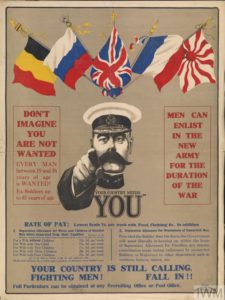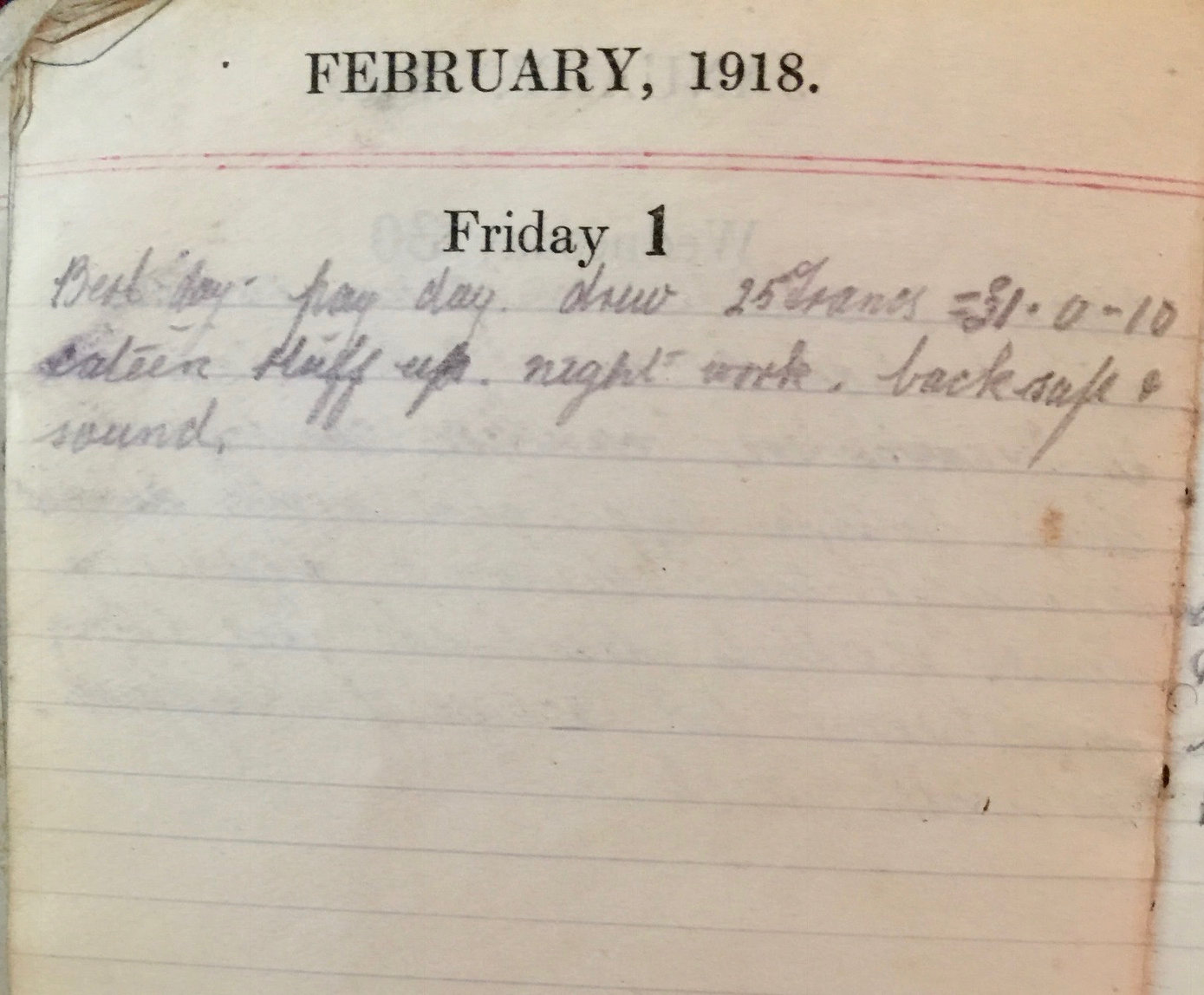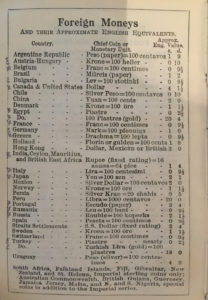Friday Feb 1st, 1918
Best day – pay day. Drew 25 Francs equal to £1-0-10¹. Canteen stuff up. Night work – back safe and sound.
A Soldier’s Pay

Frank has had no money for ages – apart from a few pennies either loaned by his friends or acquired by selling his rum rations. This is a grand day indeed.
Pay for a soldier varied and was based upon his family situation. For an infantryman, basic pay at the outbreak of war was one shilling per day (five pence in decimal currency). By 1917/18 this has gone up for early joiners, with a penny added for each year of service. In addition to basic pay, if the soldier has a family or other dependants, they will receive a ‘separation allowance’ directly from the British Government. In 1914, this was 12s 6d per week for a wife with no children. This also increased over the course of the war.
This recruitment poster features Kitchener and provides more details about both the soldier’s pay and the separation allowance. The latter would be collected by dependants from the local Post Office.
By 1917, his wife Sarah Elizabeth and daughter Olive would be receiving 17s 6d a week and Frank would be contributing six pence a day from his pay towards it. In addition Frank would receive an extra penny a day (there were 12 pennies in a shilling) as ‘overseas allowance’.
It is interesting that Frank was receiving French Francs in Salonika. In his diary there is a page (shown here) that lists the exchange rates for a variety of international currencies. The page clearly points out that the equivalents are ‘approximate’. However it is interesting to think that currency exchange rates were stable enough at the time to enable them to be printed in a diary. If you read some of the actual rates as a Brit a hundred years later, you may weep! Frank has made annotations in pencil against the various countries, ‘F’ for friend and ‘E’ for enemy.
His Pay Book would be one of the documents every soldier would be carrying with him.² However this doesn’t seem to feature in this fascinating extract of film from British Pathé showing a pay day in the Army. The complete film may be accessed via the link at the bottom of this article:
13th (Service) Battalion War Diary – 1st February 1918 – Vladaja Camp
At about 06:00hrs and until about 06:30hrs the enemy shelled the vicinity of headquarters, about 15 shells, mostly HE (high explosives – Ed), arrived in the period. Our A8 battery had not been firing so there was no warning. No damage was done. 1OR having rejoined us again taken on from 31-1-18. 2 OR struck off effective strength under GRO 1011 with effect from 31-1-18 and two from 1-2-18.
References & Further Reading
¹ Pre-decimal British currency. There were 20 shillings in £1 and 12 pence in a shilling. Frank therefore has received 25 French Francs, the equivalent of £1 and 10 pence. £sd (pounds, shillings & pence).
² ‘What Tommy Took to War 1914-1918’ by Peter Doyle & Chris Foster (Shire General)
Facts, Figures & Myths on www.tommy1418.com
* poster 0414 Copyright Imperial War Museum
Soldier’s Pay Day in Army Camp 1915. Copyright British Pathé




One thought on “Pay Day – February 1st, 1918”
Comments are closed.